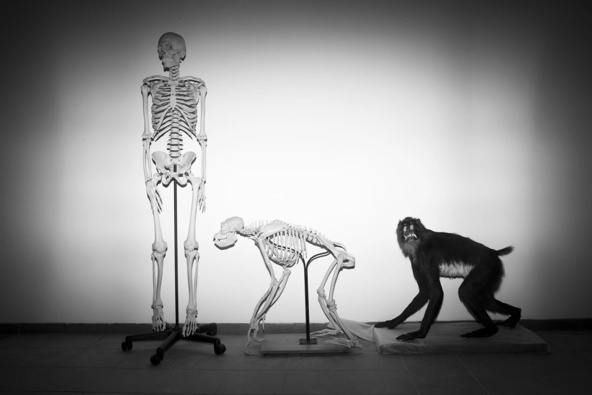Why don't we have tails? This was the question asked by geneticist Bo Xia as he recovered from a tailbone injury.
Around 25 million years ago, apes (and therefore humas) diverged from monkeys and in the process they lost their tails.
Tails play a crucial role in the animal kingdom helping creatures to communicate, balance, send signals, regulate body temperature and defend themselves.
This makes humans and apes unique among mammals, and our tail loss is thought to be the evolutionary change that led to our transition to walking on two legs.
This week scientists have finally figured out how this happened and published their results in the journal Nature.
The researchers looked at the genomes of six species of apes and 15 species of monkeys that had tails to see what the differences were between the groups. They found a significant gene mutation in a gene called TBX in both humans and apes.
To see if this gene was related to tails, they used CRISPR to create that same gene mutation in mice embryos. All of the mice went on to be born with either shorter tails or totally without tails, proving to the scientists that this gene mutation millions of years ago was the cause of our tail-free state.
The study highlighted the significant impact that even minor changes in our DNA can have.
In addition to being tail-less, the scientists found that the mice with altered genes also experienced a higher rate of birth defects related to the closing of the neural tube, which forms the spinal cord and brain.
This suggests that while losing our tails may have provided some benefits when it came to moving- it may have also increased the risk of specific health issues in humans that involve the neural tube like spinal bifida.
LISTEN ABOVE
Take your Radio, Podcasts and Music with you










